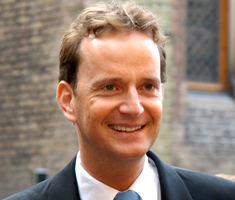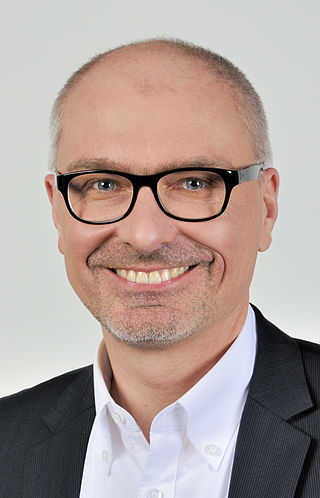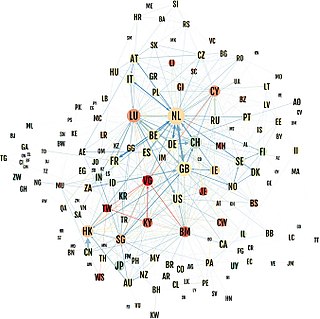
The economy of Romania is a high-income mixed economy, with a high degree of complexity. It ranks 12th in the European Union by total nominal GDP and 7th largest when adjusted by purchasing power (PPP). The World Bank notes that Romania's efforts are focused on accelerating structural reforms and strengthening institutions in order to further converge with the European Union. The country's economic growth has been one of the highest in the EU since 2010, with 2022 seeing a better-than-expected 4.8% increase.
Tax avoidance is the legal usage of the tax regime in a single territory to one's own advantage to reduce the amount of tax that is payable by means that are within the law. A tax shelter is one type of tax avoidance, and tax havens are jurisdictions that facilitate reduced taxes. Tax avoidance should not be confused with tax evasion, which is illegal. Both tax evasion and tax avoidance can be viewed as forms of tax noncompliance, as they describe a range of activities that intend to subvert a state's tax system.

The Group of Seven (G7) is an intergovernmental political and economic forum consisting of Canada, France, Germany, Italy, Japan, the United Kingdom and the United States; additionally, the European Union (EU) is a "non-enumerated member". It is organized around shared values of pluralism, liberal democracy, and representative government. G7 members are major IMF advanced economies.
David Casa is a Maltese politician and Member of the European Parliament. He is Malta's longest serving MEP, having served since June 2004. As a member of the Nationalist Party in Malta, he belongs to the European People's Party.
Tax evasion is an illegal attempt to defeat the imposition of taxes by individuals, corporations, trusts, and others. Tax evasion often entails the deliberate misrepresentation of the taxpayer's affairs to the tax authorities to reduce the taxpayer's tax liability, and it includes dishonest tax reporting, declaring less income, profits or gains than the amounts actually earned, overstating deductions, using bribes against authorities in countries with high corruption rates and hiding money in secret locations.

Private banking is a general description for banking, investment and other financial services provided by banks and financial institutions primarily serving high-net-worth individuals (HNWIs) – those with very high income and/or substantial assets. Private banking is presented by those who provide such services as an exclusive subset of wealth management services, provided to particularly affluent clients. The term "private" refers to customer service rendered on a more personal basis than in mass-market retail banking, usually provided via dedicated bank advisers. It has typically consisted of banking services, discretionary asset management, brokerage, limited tax advisory services and some basic concierge services, typically offered through a gateway provided by a single designated relationship manager.
The International Consortium of Investigative Journalists, Inc. (ICIJ), is an independent global network of 280 investigative journalists and over 140 media organizations spanning more than 100 countries. It is based in Washington, D.C., with personnel in Australia, France, Spain, Hungary, Serbia, Belgium and Ireland.
A world taxation system or global tax is a hypothetical system for the collection of taxes by a central international revenue service. The idea has garnered currency as a means of eliminating tax avoidance and tax competition; it has also aroused the ire of nationalists as an infringement upon national sovereignty.

Climate change has resulted in an increase in temperature of 2.3 °C (4.14 °F) (2022) in Europe compared to pre-industrial levels. Europe is the fastest warming continent in the world. Europe's climate is getting warmer due to anthropogenic activity. According to international climate experts, global temperature rise should not exceed 2 °C to prevent the most dangerous consequences of climate change; without reduction in greenhouse gas emissions, this could happen before 2050. Climate change has implications for all regions of Europe, with the extent and nature of impacts varying across the continent.

Dutch Sandwich is a base erosion and profit shifting (BEPS) corporate tax tool, used mostly by U.S. multinationals to avoid incurring European Union withholding taxes on untaxed profits as they were being moved to non-EU tax havens. These untaxed profits could have originated from within the EU, or from outside the EU, but in most cases were routed to major EU corporate-focused tax havens, such as Ireland and Luxembourg, by the use of other BEPS tools. The Dutch Sandwich was often used with Irish BEPS tools such as the Double Irish, the Single Malt and the Capital Allowances for Intangible Assets ("CAIA") tools. In 2010, Ireland changed its tax-code to enable Irish BEPS tools to avoid such withholding taxes without needing a Dutch Sandwich.
Henley & Partners is a British investment migration consultancy based in London. The company offers services to individuals and consults governments on residence and citizenship programs. In some cases, the company even runs the programs on behalf of governments. The company has pioneered the industry of selling citizenship and passports.

Gabriel Zucman is a French economist who is currently an associate professor of public policy and economics at the University of California, Berkeley‘s Goldman School of Public Policy, Chaired Professor at the Paris School of Economics, and Director of the EU Tax Observatory.

Peter Simon was Member of the European Parliament (MEP) representing Germany from 2009 until 2019.

Conduit OFC and sink OFC is an empirical quantitative method of classifying corporate tax havens, offshore financial centres (OFCs) and tax havens.

The global minimum corporate tax rate, or simply the global minimum tax, is a minimum rate of tax on corporate income internationally agreed upon and accepted by individual jurisdictions in the OECD/G20 Inclusive Framework. Each country would be eligible for a share of revenue generated by the tax. The aim is to reduce tax competition between countries and discourage multinational corporations (MNC) from profit shifting that avoids taxes.
The general notion of cryptocurrencies in Europe denotes the processes of legislative regulation, distribution, circulation, and storage of cryptocurrencies in Europe. In April 2023, the EU Parliament passed the Markets in Crypto Act (MiCA) unified legal framework for crypto-assets within the European Union.

Jersey is a Crown Dependency with fiscal sovereignty and therefore sets its own tax rates. The island has a 'simple and stable' tax system, which does not change much over time. This is reflected in States policies, which call for a 'low, broad, simple and fair' system. Jersey does not have inheritance, wealth, corporate or capital gains tax.

The Directive on Administrative Co-operation in the field of taxation is a Directive which sets rules for the Automatic Exchange of Information (AEOI) which apply to members of the European Union (EU).
The global minimum tax on billionaires is a proposal by EU TAX put forward by UC Berkeley economist Gabriel Zucman to the G20. It is supported by the Brazilian and French presidents, Lula and Emmanuel Macron, and by ministers from South Africa, Spain, France and Germany. The proposal is for a 2% wealth tax floor and draws inspiration from the 15% global minimum corporate income tax. The current effective tax rate on wealth held by billionaires is estimated to be just 0.3%.











